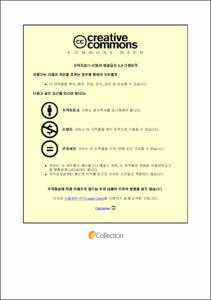A Comparative Study of Digital Competence and Response to Digital Innovations by Korean and Nigerian Newspaper Journalists
- Abstract
- In the 21st century, digital innovations beset many industries, but particularly the journalism and mass media industry. This invariably has forced changes in how the profession is studied and practised. A lot of new possibilities came with respect to news gathering, processing and dissemination. A lot of new gadgets and software programmes are now available, many of which make the practise of journalism quite easier, and also some quite disrupt the industry.
Followed with the advent of internet, journalism has effectively entered a new era. Readership demography is changing as online and social media usage increase. In some cases, old media giants have slowed down while new digital giants emerge. The gate-keeping role of the traditional media is being challenged by user generated contents and citizen journalists. The revenue streams of the traditional media get fractured, and with the fracture some media organisations fail in business and sometimes close down entirely.
For journalists too, these changes have brought new realities. For many of them, this is no longer the profession they used to know; it has become a new one with different dynamics, which require new skill sets and force on them new job specifications in order to remain in it. For some who cannot cope with this new reality, they have to leave the profession for good.
Because digital competence has become a requisite for the practise of journalism in the now, what makes sense is for every journalist to train and keep retraining to be able to function in the digital environment. Also as many new technology facilities emerge, it is also necessary to keep retraining to be able to use them. But not all journalists are always able to learn new skill or acquire premium competence. For many reasons; like digital divide with regards to their countries of residence, economic realities, attitude, etc. these journalists are not getting the required training. And when this is the case, it has consequences for journalism itself.
In the light of all said above, this paper aims to conduct a comparative study of digital competence and response to digital innovations by Korean and Nigerian newspaper journalists. Korea and Nigeria share some common realities with respect to political and media history, and yet there are a lot different with regards to newsroom culture, media economy and opportunities.
This study aims to discover how these realities may affect and shape the capacity of journalist to acquire new skills for journalism practise in the digital era and, importantly, if there are similarities and differences that could be observed among Korean and Nigerian newspaper journalists in the acquisition of digital skills for journalism practice in the now.
- Issued Date
- 2017
- Awarded Date
- 2017. 2
- Type
- Dissertation
- Keyword
- Nigerian Newspaper Journalists
- Publisher
- 부경대학교 대학원
- Affiliation
- 부경대학교 대학원
- Department
- 대학원 신문방송학과
- Advisor
- 한혜경
- Table Of Contents
- Chapter I. INTRODUCTION 8
1. Background to the study 8
2. Purpose of study 8
3. Significance of the study 9
4. Scope and limitations of the study 10
5. Summary 11
Chapter II. LITERATURE REVIEW 12
1. Introduction 12
2. Theoretical perspectives on digital media innovation 12
3. Theoretical perspectives on digital competence 14
4. Concepts and discourse on digital divide 15
5. Journalism in the digital era 17
6. Newspaper in the digital era 18
7. The newspaper journalist in the digital media era 22
8. Current status of the South Korean newspaper industry 23
9. Current status of the Nigerian newspaper industry 25
10. Summary 26
Chapter III. RESEARCH METHODOLOGY 28
1. Introduction 28
2. Research design 28
3. Research method 28
4. Sampling method and data collection 29
5. Method of data analysis 31
5.1 Grounded theory and qualitative coding 31
5.2 Coding steps in grounded theory 32
6. Summary 34
Chapter IV. FINDINGS AND ANALYSIS OF THE DATA 35
1. Journalists’ perception of the changing newspaper industry 35
1.1 Changes in the newspaper newsroom 35
1.2 Effects of the changes in the newspaper newsroom 37
1.3 Journalists’ adjustment to the changes in Korea and Nigeria 39
1.4 Summary 41
2. Comparing attitude and digital competence of the interviewed journalists 42
2.1 Comparing the journalists’ attitude to importance of digital skill 42
2.2 Comparing the journalists’ use of selected software programmes and social media 43
2.3 Summary 46
3. Underscoring the reasons for the difference in digital use between Korean and Nigerian interviewed journalists 46
4. Digital training support and challenges face journalists face in obtaining them 48
5. Summary 50
Chapter V. SUMMARY AND CONCLUSION 52
1. Summary 52
2. Conclusion 52
3. Suggestion for future research 53
References 54
- Degree
- Master
- Files in This Item:
-
-
Download
 A Comparative Study of Digital Competence and Response to Digital Innovations by Korean and Nigerian.pdf
기타 데이터 / 1.29 MB / Adobe PDF
A Comparative Study of Digital Competence and Response to Digital Innovations by Korean and Nigerian.pdf
기타 데이터 / 1.29 MB / Adobe PDF
-
Items in Repository are protected by copyright, with all rights reserved, unless otherwise indicated.